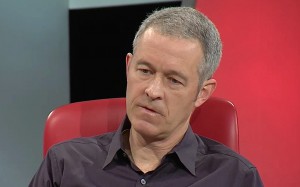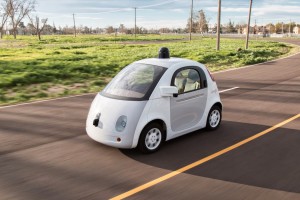Apple could have its first car, a battery-powered, autonomous vehicle, on the road by 2019, according to a new report.
While the company, best known for its computers, iPhones and iPads, has yet to confirm it will enter the automotive business, Apple’s efforts have become increasingly visible as it hires away talent from other automakers, and meets with regulators to discuss issues such as rules on self-driving vehicles.
The maker’s automotive project is known internally as “Project Titan,” and a new report in the Wall Street Journal says Apple has set a “ship date” of 2019, though that is not a guarantee a car would actually be ready for sale that year.
Evidence has been rapidly mounting that Apple is moving fast. It has hired a number of new employees with automotive experience, including former Chrysler quality chief Doug Betts, Volkswagen engineer Megan McClain, Vinay Palakkode, a graduate researcher at Carnegie Mellon University, and Xianqiao Tong, a computer vision software specialist from Nvidia.
(Click Here to catch all the news from the 2015 Frankfurt Motor Show.)
Officials from the California Department of Motor Vehicles have confirmed meeting with an Apple attorney last month to discuss the state’s new rules for autonomous vehicles.
Apple also has approached managers of a government-owned automotive testing facility near San Francisco. The former Navy base would potentially be used for the development of self-driving technology.
(New Tesla Model X expected to deliver more range than original promised. Click Here for the story.)
Apple officials reportedly also have been meeting with several existing manufacturers, including Daimler AG and BMW. Industry analysts believe Apple is exploring the possibility of contracting production of a vehicle, though it could also look to put up its own factory.
The CEO of Daimler AG last month said he would be open to an alliance with both Apple and its high-tech rival Google, which has become a leader in the development of autonomous vehicle technology. The parent company of Mercedes-Benz also has an ongoing relationship with battery carmaker Tesla.
“Many things are conceivable,” Daimler CEO Dieter Zetsche told the German magazine Deutsche Unternehmerboerse. “Google and Apple want to provide system software for cars and bring this entire ecosystem around Apple and Google into the vehicle. That can be interesting for both sides.”
Entering the auto industry would mark the most significant move outside of its core business in Apple’s history, and it would likely require a significant cash investment – especially if the company were to set up its own assembly plant – itself a likely billion-dollar investment.
But Apple could draw on a cash cushion of around $200 billion, according to analysts, significantly more than is available to even the biggest automotive manufacturers such as Toyota, Volkswagen or General Motors.
“We believe the auto industry represents a significant opportunity for Apple, but we also expect Apple to be deliberate as always in its product development and testing,” Piper Jaffray analyst Gene Munsters said in a report issued early this month.
The auto industry long posed seemingly insurmountable obstacles to outsiders. But the industry’s increasing reliance on digital electronics and alternative powertrain technology has spurred on new entrants, including Silicon Valley players like Tesla and Google.
The latter, best known for its search engine technology, is in the process of rolling out around 100 self-driving prototypes it will test around its Silicon Valley headquarters. But Google has said it does not intend to take on the job of manufacturing cars, instead suggesting it wants to find a partner to work with.
Google this month hired former Hyundai Motor America CEO John Krafcik to head its autonomous vehicle program, a sign it is moving closer to putting that technology into real world use. But so far, Google has not said whether it has lined up a partner willing to use its self-driving software.
(Global EV sales hit the 1-million-unit mark. Click Here for the story.)


